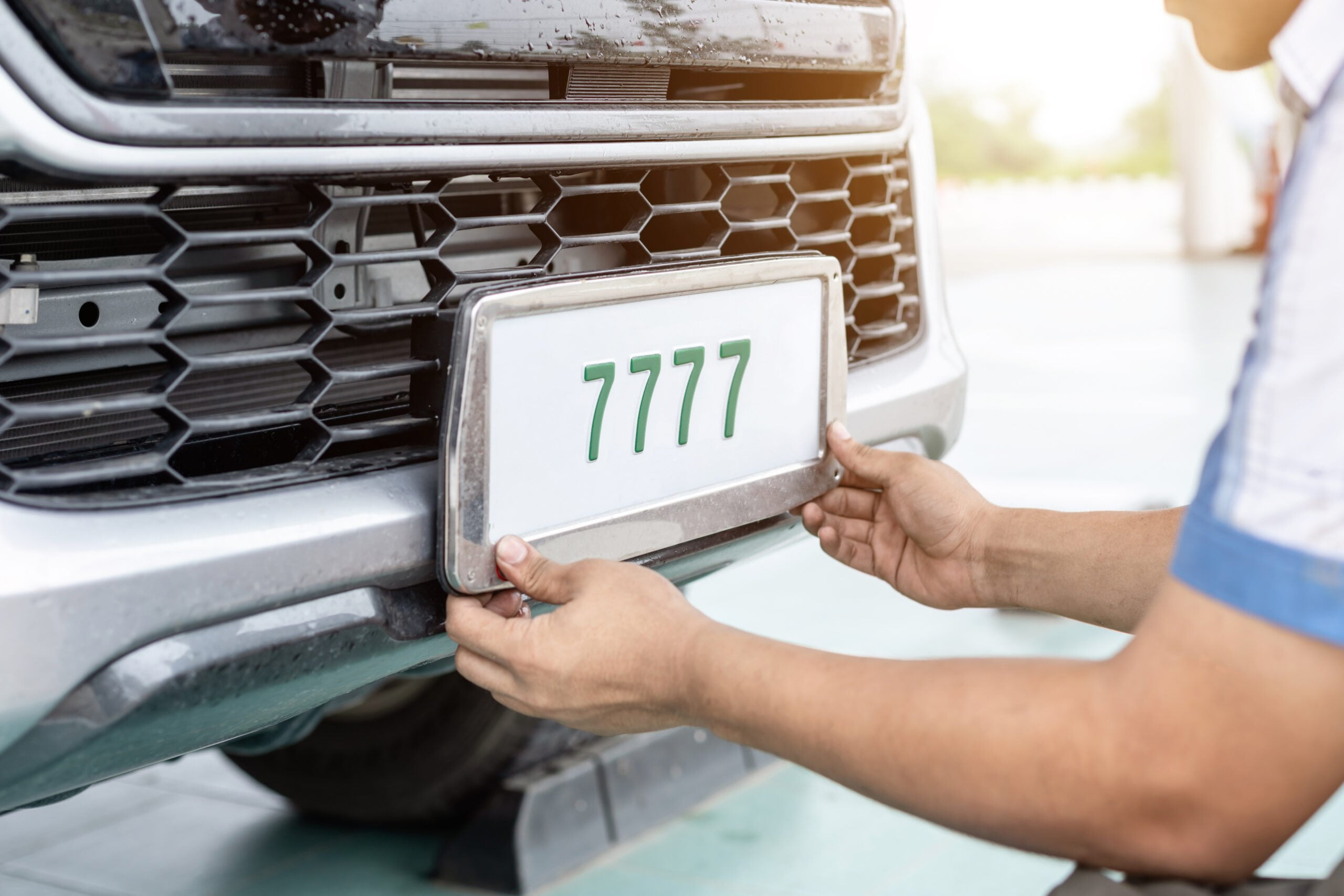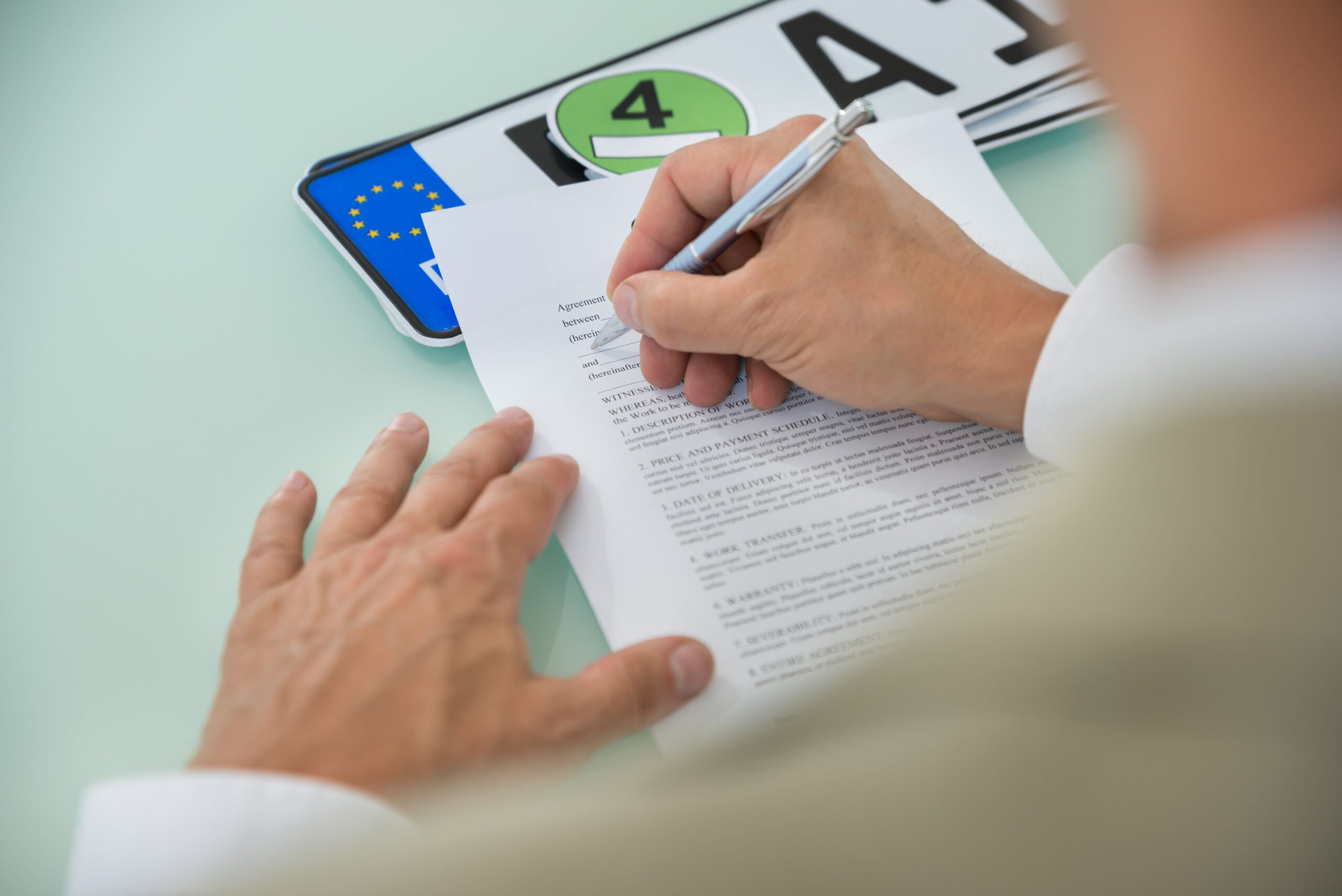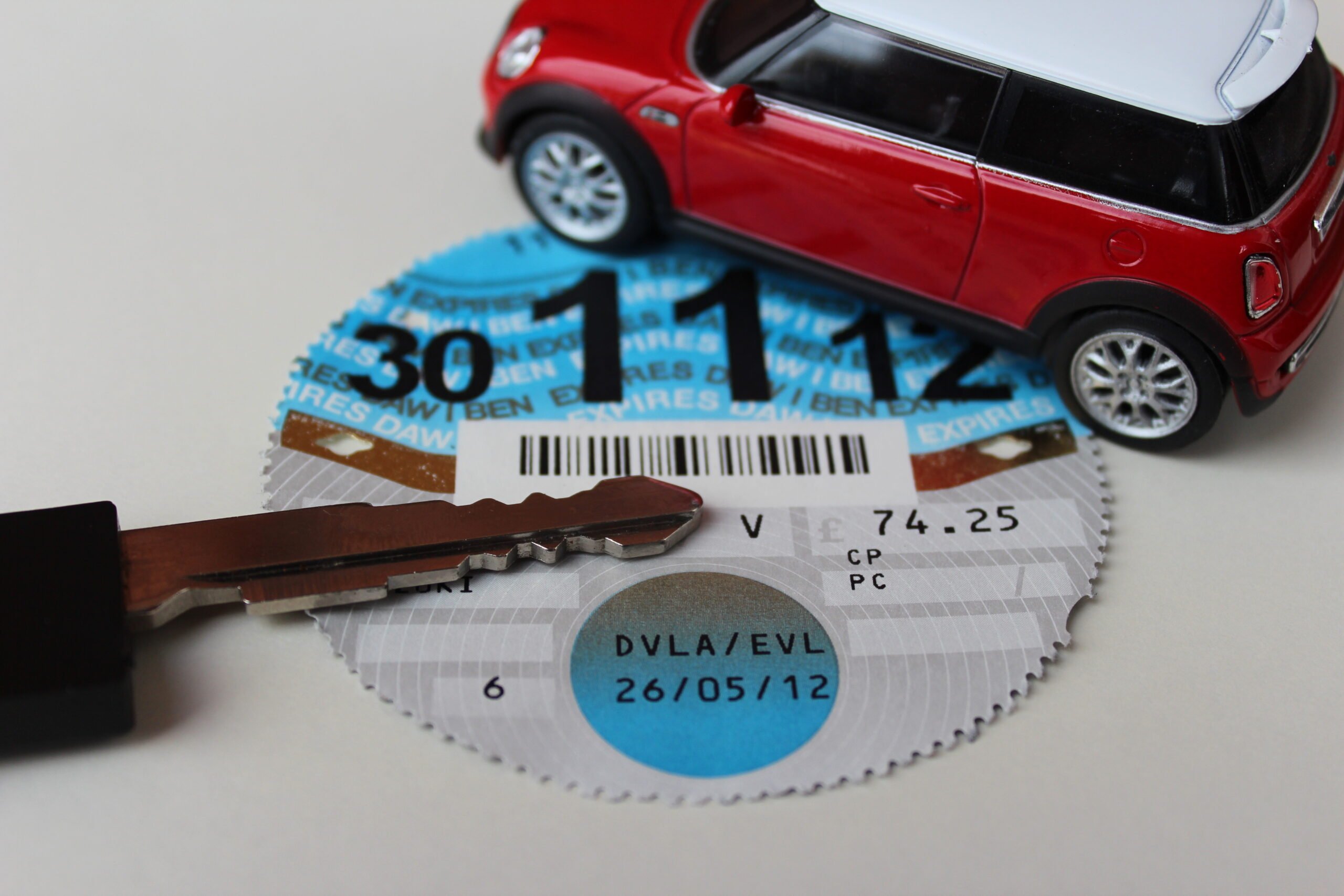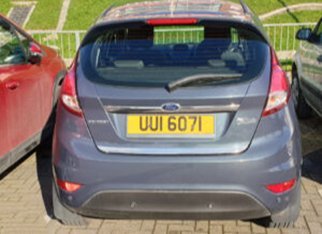If you’ve never bought, sold or allocated a private plate to a vehicle in the past you could be forgiven for assuming that it’s a complicated, time-consuming and potentially very expensive activity. To be fair, it certainly used to be all that and more, but not today. The whole private number plate business is now incredibly easy; so much so, that I even got one myself this year, despite vowing many years ago that I’d rather give up driving than ever go through the trauma of getting a private registration number.

How things have changed
When I was selling new and used cars for a major dealer group, customers didn’t think it was a big deal that they had a private registration number on the car they were trading in that they wanted to be transferred to the car they were buying. Of course, nothing could be further from the truth, and most of the time I’d rather have given the sale to someone else than put myself through the whole number plate transfer process.
Getting a plate allocated to a car or transferring it from one car to another used to mean a visit to a DVLA-authorised post office with a file full of paperwork that all had to be 100% present and correct; even to the point of using the correct colour ink! With used cars, you needed the logbook, MOT certificate, and even the current insurance certificate.
Nowadays, the DVLA has access to databases that show every vehicle’s registration, MOT, insurance and road tax status, so you don’t need to send them in or even email copies of them t the DVLA. Even if you choose to do the process through the post rather than online, you still don’t need to send those documents in with your application. How cool is that?
Buying a private registration number
There are three main places you can buy a private plate from and they are all pretty straightforward. The first way is to buy directly from the DVLA, the second way is to buy from a registration number dealer, and the last way is to buy directly from a private individual.

There are two ways number plates are sold, which are fixed-price sales and auctions. I’m not going to suggest that one type of sale is particularly better than the other, except a fixed price sale is better if you want your plate in a hurry and you don’t want to wait until the end of the auction. If you think you might get a bargain at an auction then think again. If a number is desirable, it will fetch a good price regardless of which way it’s offered for sale.
I bought my personal plate straight from the DVLA and I paid the cheapest price the DVLA sells numbers for, which was £250 including Vat and the assignment fee). You pay the assignment fee upfront so there’s nothing more to pay when you want to allocate it to a vehicle. However, once the plate has been assigned to a vehicle, you’ll have to pay the £80 fee again when you want to transfer it or put it back on retention.
The DVLA only sells numbers that it hasn’t allocated before or ones it has held back. My plate was a letter followed by two numbers and then three letters. Technically speaking, as the first letter is a K it does represent the 1971/72 registration period, but nobody is going to think my brand-new 2021 SUV was built and registered more than 50 years ago. I would have expected my number to cost a lot more than it did, but that just goes to show that just because a registration has meaning to you it doesn’t mean anyone else will think the same.
The buying and selling process
All you need these days to buy a private registration number is a debit or credit card and an internet connection. I’d like to make some clever comparisons between buying a registration number online and how it’s as easy as buying some other product online, but I’m struggling to think of something else that’s as easy to buy online as a registration number.
Whether you’re buying directly from the DVLA or from a dealer, all it takes is a minute or two online and a few clicks and you’re done. As soon as payment is made, you’ll then get an email confirmation with details of your purchase, and that’s all you need to go right ahead and assign it to a vehicle. A paper certificate and receipt will arrive later in the post.
Selling a number is just as easy. All you have to do is agree on a price with a buyer, make sure you have payment, and then transfer the number to its new owner using the DVLA website. I will keep saying it couldn’t be simpler because I can’t think of any way the process could be made any easier than it is.

Times to be careful
I must stress that more care has to be taken if you are buying or selling a registration number privately, rather than through a dealer or the DVLA. It is possible to have your private plate stolen if you put images of your V5C online, and you could even have someone change the registered keeper of your vehicle itself if they can see the necessary details on the V5C.
As long as you don’t post images of your documents online or email them to someone you don’t know, and as long as you stick to the rules and guidelines stated by the marketplace you’re using (eBay for example), then you should be okay. Even so, I’d suggest you save yourself the hassle and shop your number around as many dealers as you can and sell to the one that offers you the best price.



